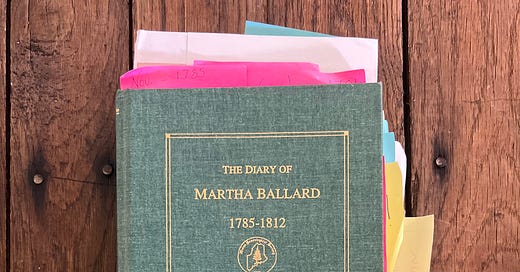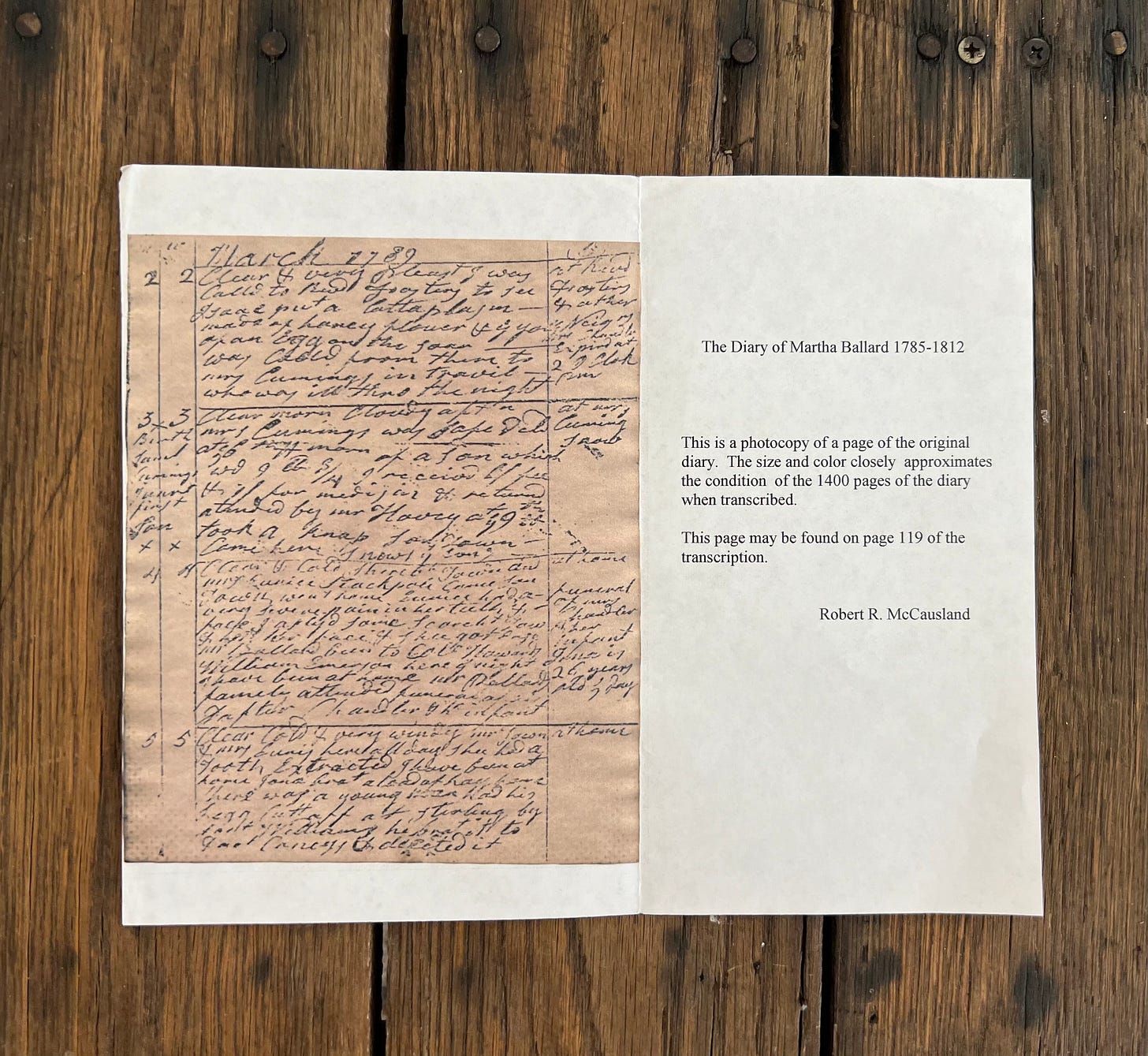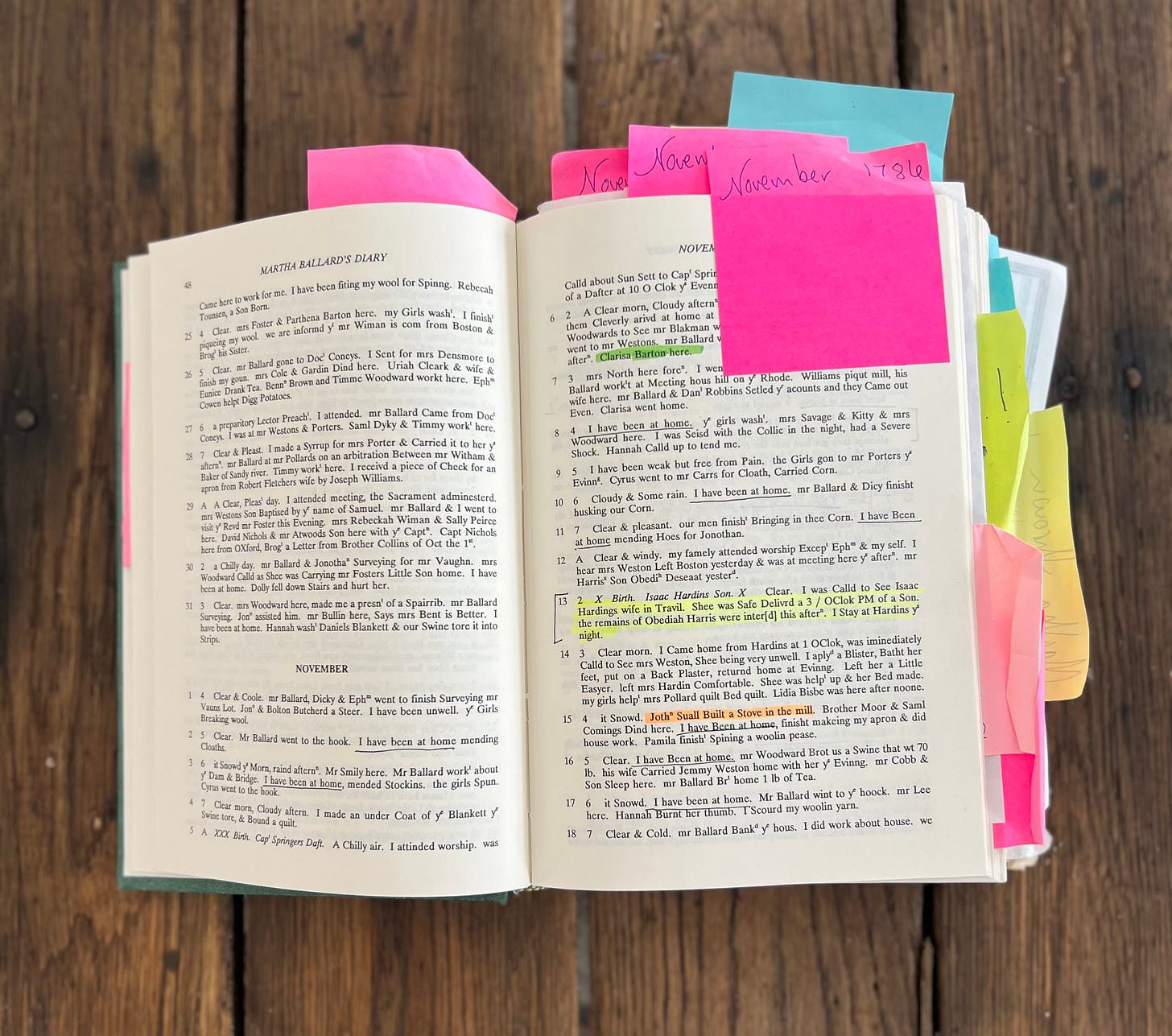How we spend our days is, of course, how we spend our lives. Annie Dillard
Ariel Lawhon’s brilliant, bestselling new novel The Frozen River was sprung from a devotion found in a free pamphlet about a nearly forgotten Puritan midwife in a small Maine village. Ariel read the account of that midwife, tore out the page from that pamphlet, and filed it away to write about “someday.” Why was that midwife significant? What made the author of that devotion write about her? And why were they able to hundreds of years later? Because she kept a record of her life.
Not a diary, mind you— it wasn’t that verbose. It was more of a daily log: just a few lines a day about what happened, who she tended to, her family life. Just the highlights. But the highlights were enough. Because, reading between the lines, Ariel saw a story playing out. Sure, Ariel took liberties with that story (the book is fiction, after all) but in the midst of farming and delivering babies and barn dances and tending to children, Martha Ballard wove the simplest— yet most complex— of stories: the story of a woman’s life.
Choose the least important day in your life. It will be important enough. Thornton Wilder
Martha’s record of her life can inspire us to keep a record of our own. Not a “dear diary” kind of record, with page after page of words. Just something simple— a few lines a day about what happened, who we spoke to, news that impacted our families, our communities. It may seem trite at the outset, but when this year ends and we are able to look back and take stock of what this brief snatch of time held for us, for those we love, we might be very glad to have kept our own record.
And maybe someday it will go further than that. Maybe someday our record will matter to our children and grandchildren. Maybe they’ll marvel at our antiquated technology or scrunch their brows over an outdated expression, or wonder about a mode of transportation nearly forgotten. But they can’t do any of that if we don’t record our days— our ordinary, not much going on, utterly forgettable days. That, it turns out, are actually worth remembering.
Do you journal? Keep a diary? A sketchbook? I would love to hear from you on how you keep a record. Or chat about ideas to help you start this meaningful habit.







I read (and LOVED) The Frozen River last weekend. Martha’s brief diary entries reminded me of the meticulous journals that my late grandfather kept. Each day in his journaling was allocated just 3-4 lines, where he commented on the weather, his location (he traveled often), and a significant event or 2 of that day. After he died, I looked at the journals for the first time. I found the day I was born (his 3rd grandchild). I hoped that my arrival made that day’s entry...and it didn’t! Something more important happened in the world than my birth. I was saddened but couldn’t be upset. I appreciate how reading The Frozen River brought the memory of my grandfather’s daily habit back into my awareness, otherwise there’s a chance it would’ve escaped my thoughts.
Ach, this makes me want to be far more intentional about a simple log of the minutia in the day.
I always come to the end of a notebook full of morning pages or an annual planner and think "this was great, but it's not the kind of thing you pass down." Being the kind of person who has not a single family member in her life with a legacy of words -- but hopes to create one of her own -- I feel the urgency to START NOW.
And then that urgency is quelled by whispers such as "you're too late" or "who would even care?"
Maybe I'll get myself one of those "one line a day" 5-year journals in celebration of my soon-coming 40th birthday!